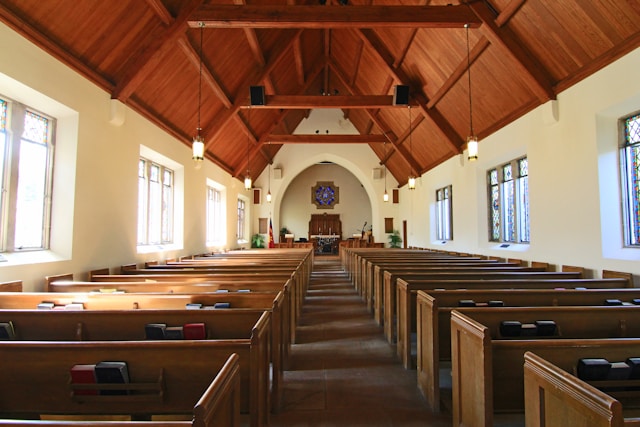The Anglican Church is one of the largest and most influential religious denominations in the world, which emerged in the 16th century from the Anglo-Saxon tradition, lying between Catholicism and Protestantism. Its origins are closely tied to King Henry VIII’s decision to break ties with the Pope and establish an independent church, a pivotal moment in both religious and British history. This decision was driven by personal and political reasons, but it later influenced the development of Christianity, making the Anglican Church unique and intermediary between Catholic and Protestant traditions.
The Birth of Anglicanism
At the beginning of the 16th century, King Henry VIII sought to expand his power, which led to a conflict with the Pope. The opposition started when Henry wished to divorce Catherine of Aragon and marry Anne Boleyn. The Pope refused to annul the marriage, and this became a catalyst for the king. In response, he initiated the process of separating the Church of England from Rome. In 1534, Henry VIII declared himself the head of the Church of England, and this act symbolized the birth of Anglicanism.
This process led to a unique church model, which, on one hand, retained many Catholic rituals but, at the same time, rejected papal supremacy, bringing it closer to Protestantism. The Anglican Church still retains some elements of Catholic teaching but its doctrine and structure are noticeably different from that of the Catholic Church.
Key Differences of the Anglican Church
One of the most noticeable differences between Anglicanism and Catholicism is the presence of a unique theology that combines elements of both Catholicism and Protestantism. While the Catholic Church acknowledges the supremacy of the Pope and maintains many rituals and teachings, the Anglican Church holds the position that the head of the church is the monarch, not the Pope. As a result, it remained independent of Rome and gradually developed as a distinct religious institution.
The Anglican Church is also distinguished by its liturgical traditions. Unlike Protestant churches, which often limit the number of rites, Anglicanism retains rituals such as the Mass, confession, and the sacrament of the Eucharist. However, unlike Catholic tradition, Anglicanism does not believe in the transformation of bread and wine into the body and blood of Christ, as is claimed in Catholic theology.
From a theological standpoint, the Anglican Church adheres to a “middle ground,” blending elements of Catholic tradition and Protestant teachings. This makes Anglicanism appealing to many believers who find both traditions close but seek a compromise. This approach also influences the church’s perception as being open to dialogue and reform.
The Influence of Anglicanism on Society
Since its foundation, the Anglican Church has played a key role in shaping English culture and society. It not only determined the spiritual life of Britain but also exerted significant influence on politics and education. The influence of Anglicanism spread far beyond Britain, especially to countries that were once part of the British Empire. Today, the Anglican Church continues to be an important part of the Christian tradition, with millions of followers around the world.
Moreover, it is worth noting that in modern times, like other religious organizations, the Anglican Church has adapted to new technologies and modern challenges. For example, with the development of digital technologies and the internet, new forms of communication with believers have emerged, including online sermons and even online interaction with clergy.
These changes help religious organizations remain relevant in the modern world, where virtual entertainment, and visiting websites like slovenskecasino.net, which feature reviews and the best online casinos with a wide range of games for every taste, also become part of daily life.
The Role of Anglicanism in the Modern World
The Anglican Church continues to evolve and contribute to social and cultural processes. While its main mission remains unchanged — to serve believers and uphold moral values — it is also actively involved in contemporary discussions on human rights, ecology, and social issues. Problems that the modern world faces, such as climate change or social inequality, often become topics of discussion within the Anglican Church.
Thus, the Anglican Church represents a unique blend of traditions, where respect for heritage is as important as the ability to adapt to new challenges of the times. This makes Anglicanism relevant and interesting for modern believers who seek a spiritual foundation in a world full of change.
In conclusion, the Anglican Church remains an important link between Catholicism and Protestantism, maintaining a balance between traditions and the necessity of change. This allows it to remain a religion that not only preserves its faith but also actively participates in addressing pressing societal issues.
